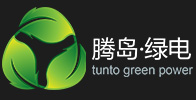is the us undermining india\'s solar power programme?
by:Tunto
2019-12-29
What happened to all the statements made by international companies? -
What action we heard at the Paris Climate Conference a few months ago to address climate change?
Many environmentalists are demanding this after the United States devastated India\'s ambitious solar project this week.
In response to complaints from the United States, the World Trade Organization(WTO)
The panel ruled that India\'s national solar mission violated trade rules.
It argues that India\'s policy of buying locally manufactured solar energy equipment discriminates against imports.
\"The ink on the United Nations climate agreement in Paris has hardly dried up, but it is clear that trade still outperforms real action on climate change,\" Sam Cossa said. -
Friends of the Earth International Gilbert said in a statement.
But is this decision really as damaging as many commentators think?
Let\'s start from scratch.
One of the greatest achievements at the Paris Climate Change Conference was the inclusion of India in the framework of international climate agreements.
It refuses to commit itself to limiting carbon dioxide emissions, but it does commit itself to substantially improving the carbon efficiency of the economy. -
Carbon emissions per unit of GDP.
A key part of this commitment is a commitment to invest heavily in renewable technologies, including a substantial increase in solar energy.
India says it will increase solar power generation by 100 gigawatts by 2022.
This exceeds the solar capacity of the world\'s top five solar energy sources. -
The sum of producing countries. And -
You guessed it right. -
The National Solar Mission is the central part of the whole shebang.
But while the United States is cautiously involving India in climate negotiations, it has also appealed to the World Trade Organization that India\'s solar program creates unfair barriers to U. S. imports. -
Manufacture solar panels.
India\'s plans include, of course, a \"local purchase\" policy.
The clear goal of the solar mission is to make India one of the largest participants in the fast-growing international solar industry.
In fact, the development of solar energy is a key driver of the \"Made in India\" policy signed by Prime Minister Narendra Modi.
That\'s the interesting economic argument.
Because in most of the comments I\'ve read, it\'s assumed that buying local content is a good thing.
Look at this article in the online environmental magazine Grist, or in the Huffington Post, which says, \"This ruling shows decades. -old, over-
Achieving trade rules is out of step with the global challenge of 100% clean energy.
\"Many economists would say it\'s confusing. -headed.
Think about what the Buy Local rule is about.
They are there to protect local capitalists. -Indian-
Solar panel company-
Competition from abroad.
That means one of two things.
Behind the protective barrier, they get extra profits.
Or they can run inefficient businesses.
Anyway, those who buy batteries lose because they end up spending more money.
Forbes is a good illustration of this point. It argues that WTO rules help to correct the inherent imbalance between producers and consumers.
The problem is that local businesses tend to feel very competitive about creating comfort. -
Free space, so they tried to lobby the government.
Their customers have less incentive to make a fuss, so manufacturers tend to win.
This is the context of WTO agreements. Trade disputes like this are beneficial to consumers. That is why -
Operating parameters-
The WTO ruling on India will actually bring enormous environmental benefits.
The World Trade Organization is ensuring that India\'s solar ambitions are realized in the most effective way, because Indian companies have to buy the cheapest solar panels if they want to produce solar energy.
That\'s certainly what the U. S. solar industry says.
\"This decision will help us bring clean energy to the Indian people because India\'s demand for electricity is growing rapidly,\" Dan Whitney of the Solar Energy Industry Association told PV. -Tech magazine.
India certainly disagrees.
It believes that the development of local solar industry will promptly promote international competition, thereby reducing the price of solar panels for everyone.
There is no doubt that India will tend to point out the hypocrisy of US trade policy.
Although the United States advocates free market liberalization in international forums such as the WTO, it has not practiced what it preaches at home.
Half of the states in the United States have renewable energy subsidies.
Perhaps India should apply for a counter. -
Complaint to the WTO about the United States.
What action we heard at the Paris Climate Conference a few months ago to address climate change?
Many environmentalists are demanding this after the United States devastated India\'s ambitious solar project this week.
In response to complaints from the United States, the World Trade Organization(WTO)
The panel ruled that India\'s national solar mission violated trade rules.
It argues that India\'s policy of buying locally manufactured solar energy equipment discriminates against imports.
\"The ink on the United Nations climate agreement in Paris has hardly dried up, but it is clear that trade still outperforms real action on climate change,\" Sam Cossa said. -
Friends of the Earth International Gilbert said in a statement.
But is this decision really as damaging as many commentators think?
Let\'s start from scratch.
One of the greatest achievements at the Paris Climate Change Conference was the inclusion of India in the framework of international climate agreements.
It refuses to commit itself to limiting carbon dioxide emissions, but it does commit itself to substantially improving the carbon efficiency of the economy. -
Carbon emissions per unit of GDP.
A key part of this commitment is a commitment to invest heavily in renewable technologies, including a substantial increase in solar energy.
India says it will increase solar power generation by 100 gigawatts by 2022.
This exceeds the solar capacity of the world\'s top five solar energy sources. -
The sum of producing countries. And -
You guessed it right. -
The National Solar Mission is the central part of the whole shebang.
But while the United States is cautiously involving India in climate negotiations, it has also appealed to the World Trade Organization that India\'s solar program creates unfair barriers to U. S. imports. -
Manufacture solar panels.
India\'s plans include, of course, a \"local purchase\" policy.
The clear goal of the solar mission is to make India one of the largest participants in the fast-growing international solar industry.
In fact, the development of solar energy is a key driver of the \"Made in India\" policy signed by Prime Minister Narendra Modi.
That\'s the interesting economic argument.
Because in most of the comments I\'ve read, it\'s assumed that buying local content is a good thing.
Look at this article in the online environmental magazine Grist, or in the Huffington Post, which says, \"This ruling shows decades. -old, over-
Achieving trade rules is out of step with the global challenge of 100% clean energy.
\"Many economists would say it\'s confusing. -headed.
Think about what the Buy Local rule is about.
They are there to protect local capitalists. -Indian-
Solar panel company-
Competition from abroad.
That means one of two things.
Behind the protective barrier, they get extra profits.
Or they can run inefficient businesses.
Anyway, those who buy batteries lose because they end up spending more money.
Forbes is a good illustration of this point. It argues that WTO rules help to correct the inherent imbalance between producers and consumers.
The problem is that local businesses tend to feel very competitive about creating comfort. -
Free space, so they tried to lobby the government.
Their customers have less incentive to make a fuss, so manufacturers tend to win.
This is the context of WTO agreements. Trade disputes like this are beneficial to consumers. That is why -
Operating parameters-
The WTO ruling on India will actually bring enormous environmental benefits.
The World Trade Organization is ensuring that India\'s solar ambitions are realized in the most effective way, because Indian companies have to buy the cheapest solar panels if they want to produce solar energy.
That\'s certainly what the U. S. solar industry says.
\"This decision will help us bring clean energy to the Indian people because India\'s demand for electricity is growing rapidly,\" Dan Whitney of the Solar Energy Industry Association told PV. -Tech magazine.
India certainly disagrees.
It believes that the development of local solar industry will promptly promote international competition, thereby reducing the price of solar panels for everyone.
There is no doubt that India will tend to point out the hypocrisy of US trade policy.
Although the United States advocates free market liberalization in international forums such as the WTO, it has not practiced what it preaches at home.
Half of the states in the United States have renewable energy subsidies.
Perhaps India should apply for a counter. -
Complaint to the WTO about the United States.
Custom message
 miko@tunto.cn
miko@tunto.cn






